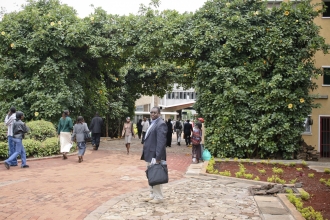Assessing the Performance of Alternative Water and Sanitation Tariffs: The Case of Nairobi, Kenya
Policy makers and utility managers can use a variety of tariff structures to calculate customers’ bills for water and sanitation services, ranging from a simple flat monthly fee to complicated multipart tariffs with seasonal pricing based on metered water use. This paper examines the performance of alternative tariff structures for water and wastewater services in Nairobi, Kenya.



